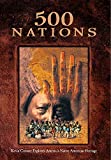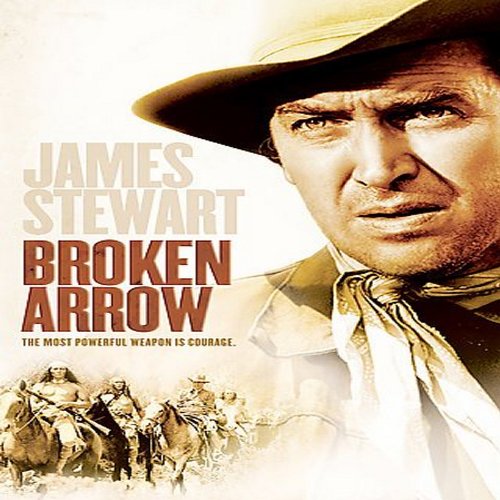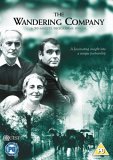![The Sopranos: Series 1 (Vols. 1-3) [1999]](/pictures/1020090.jpg) The Sopranos: Series 1 (Vols. 1-3) | DVD | (17/07/2001)
from £N/A
| Saving you £N/A (N/A%)
| RRP
The Sopranos: Series 1 (Vols. 1-3) | DVD | (17/07/2001)
from £N/A
| Saving you £N/A (N/A%)
| RRP Pilot- The Sopranos: Tony Soprano agrees to see a psychiatrist after suffering a series of anxiety attacks. 46 Long: Acting boss of the family Giacomo 'Jackie' April is ill with cancer Tony gets into a power struggle with Uncle Junior that he doesn't want. Denial Anger Acceptance: Unbeknownst to her parents Meadow and her friend Hunter score some crystal meth from Brendan and Christopher to help them study. Meadowlands: Christopher along with his girlfriend Adriana finds Brendan's brains splattered all over his tub. College: Tony takes Meadow around Maine to interview for colleges. When Dr. Melfi telephones to cancel an appointment Carmela realises that Tony lied about his psychiatrist's gender and is immediately suspicious. Politics go out the window and Tony finds himself in strife as members of the family get head strong and make a stand. Tony's position becomes increasingly more uncomfortable. Still it gives him time to reflect. The Sopranos series won Golden Globes for Best Actor (James Gandolfini) best actress (Edie Falco) and best supporting actress (Nancy Marchand).
![The Sopranos: Series 2 (Vols. 1-3) [2000]](/pictures/1020094.jpg) The Sopranos: Series 2 (Vols. 1-3) | DVD | (23/07/2001)
from £N/A
| Saving you £N/A (N/A%)
| RRP
The Sopranos: Series 2 (Vols. 1-3) | DVD | (23/07/2001)
from £N/A
| Saving you £N/A (N/A%)
| RRP The second series of The Sopranos, David Chase's ultra-cool and ultra-modern take on New Jersey gangster life, matches the brilliance of the first, although it's marginally less violent, with more emphasis given to the stories and obsessions of supporting characters. Sadly, the programme makers were forced to throttle back on the appalling struggle between gang boss Tony Soprano and his Gorgon-like Mother Livia, the very stuff of Greek theatre, following actress Nancy Marchand's unsuccessful battle against cancer. Taking up her slack, however, is Tony's big sister Janice, a New Age victim and arrant schemer and sponger, who takes up with the twitchy, Scarface-wannabe Richie Aprile, brother of former boss Jackie, out of prison and a minor pain in Tony's ass. Other running sub-plots include soldier Chris (Michael Imperioli) hapless efforts to sell his real-life Mafia story to Hollywood, the return and treachery of Big Pussy and Tony's wife Carmela's ruthlessness in placing daughter Meadow in the right college. Even with the action so dispersed, however, James Gandofini is still toweringly dominant as Tony. The genius of his performance, and of the programme makers, is that, despite Tony being a whoring, unscrupulous, sexist boor, a crime boss and a murderer, we somehow end up feeling and rooting for him, because he's also a family man with a bratty brood to feed, who's getting his balls busted on all sides, to say nothing of keeping the Government off his back. He's the kind of crime boss we'd like to feel we would be. Tony's decent Italian-American therapist Dr Melfi's (Loraine Bracco) perverse attraction with her gangster-patient reflects our own and, in her case, causes her to lose her first series cool and turn to drink this time around. Effortlessly multi-dimensional, funny and frightening, devoid of the sentimentality that afflicts even great American TV like The West Wing, The Sopranos is boss of bosses in its televisual era. --David Stubbs
 Come Together - A Night For John Lennon's Words and Music | DVD | (03/11/2003)
from £7.09
| Saving you £3.90 (55.01%)
| RRP
Come Together - A Night For John Lennon's Words and Music | DVD | (03/11/2003)
from £7.09
| Saving you £3.90 (55.01%)
| RRP On October 2 2001 from Radio City Music Hall this was a concert of prayer and healing for New York City to benefit from relief efforts in the wake of last year's tragic events. The all-star concert included performances from Dave Matthews Moby Stone Temple Pilots Nelly Furtado Shelby Lynne Alanis Morrissette Cyndi Lauper The Isley Brothers Lou Reed Marc Anthony Craig David and more. Academy Award winner Kevin Spacey hosts this spectacular event which pays tribute to the mu
![Elf (Limited Edition with Alarm Clock) [2003]](/pictures/1014127.jpg) Elf (Limited Edition with Alarm Clock) | DVD | (08/11/2004)
from £N/A
| Saving you £N/A (N/A%)
| RRP
Elf (Limited Edition with Alarm Clock) | DVD | (08/11/2004)
from £N/A
| Saving you £N/A (N/A%)
| RRP After growing too big for his elf community, a man raised as an elf at the North Pole is sent to New York in search of his true identity.
![Don't Turn Out The Light [1987]](/pictures/1022153.jpg) Don't Turn Out The Light | DVD | (06/10/2003)
from £N/A
| Saving you £N/A (N/A%)
| RRP
Don't Turn Out The Light | DVD | (06/10/2003)
from £N/A
| Saving you £N/A (N/A%)
| RRP A gripping story unfolds after a cop accidentally shoots a hostage and sees his partner killed. Tortured by guilt he leaves the area and vows to avoid firearms... a decision he will soon regret! Haunted by the past his further weakness and indecision lead to three convicts escaping transfer to a top security prison. By a cruel twist of fate the trio led by a psychopathic killer take his family hostage. Tormented by his past and his pledge to never use a gun he prepares to take on
![The Sopranos: Series 2 (Vol. 1) [2000]](/pictures/1020281.jpg) The Sopranos: Series 2 (Vol. 1) | DVD | (21/05/2001)
from £6.03
| Saving you £6.96 (115.42%)
| RRP
The Sopranos: Series 2 (Vol. 1) | DVD | (21/05/2001)
from £6.03
| Saving you £6.96 (115.42%)
| RRP The second series of The Sopranos, David Chase's ultra-cool and ultra-modern take on New Jersey gangster life, matches the brilliance of the first, although it's marginally less violent, with more emphasis given to the stories and obsessions of supporting characters. Sadly, the programme makers were forced to throttle back on the appalling struggle between gang boss Tony Soprano and his Gorgon-like Mother Livia, the very stuff of Greek theatre, following actress Nancy Marchand's unsuccessful battle against cancer. Taking up her slack, however, is Tony's big sister Janice, a New Age victim and arrant schemer and sponger, who takes up with the twitchy, Scarface-wannabe Richie Aprile, brother of former boss Jackie, out of prison and a minor pain in Tony's ass. Other running sub-plots include soldier Chris (Michael Imperioli) hapless efforts to sell his real-life Mafia story to Hollywood, the return and treachery of Big Pussy and Tony's wife Carmela's ruthlessness in placing daughter Meadow in the right college. Even with the action so dispersed, however, James Gandofini is still toweringly dominant as Tony. The genius of his performance, and of the programme makers, is that, despite Tony being a whoring, unscrupulous, sexist boor, a crime boss and a murderer, we somehow end up feeling and rooting for him, because he's also a family man with a bratty brood to feed, who's getting his balls busted on all sides, to say nothing of keeping the Government off his back. He's the kind of crime boss we'd like to feel we would be. Tony's decent Italian-American therapist Dr Melfi's (Loraine Bracco) perverse attraction with her gangster-patient reflects our own and, in her case, causes her to lose her first series cool and turn to drink this time around. Effortlessly multi-dimensional, funny and frightening, devoid of the sentimentality that afflicts even great American TV like The West Wing, The Sopranos is boss of bosses in its televisual era. --David Stubbs
![The Twilight Zone - Vol. 6 [1961]](/pictures/1013269.jpg) The Twilight Zone - Vol. 6 | DVD | (31/07/2000)
from £N/A
| Saving you £N/A (N/A%)
| RRP
The Twilight Zone - Vol. 6 | DVD | (31/07/2000)
from £N/A
| Saving you £N/A (N/A%)
| RRP ![The Sopranos: Series 1 (Vol. 2) [1999]](/pictures/1020310.jpg) The Sopranos: Series 1 (Vol. 2) | DVD | (16/04/2001)
from £N/A
| Saving you £N/A (N/A%)
| RRP
The Sopranos: Series 1 (Vol. 2) | DVD | (16/04/2001)
from £N/A
| Saving you £N/A (N/A%)
| RRP The Sopranos, writer-producer-director David Chase's extraordinary television series, is nominally an urban gangster drama, but its true impact strikes closer to home: This ambitious TV series chronicles a dysfunctional, suburban American family in bold relief. And for protagonist Tony Soprano, there is the added complexity posed by heading twin families, his collegial mob clan and his own, nouveau riche brood.The series' brilliant first season is built around what Tony learns when, whipsawed between those two worlds, he finds himself plunged into depression and seeks psychotherapy--a gesture at odds with his mid-level capo's machismo, yet instantly recognisable as a modern emotional test. With analysis built into the very spine of the show's elaborate episodic structure, creator Chase and his formidable corps of directors, writers and actors weave an unpredictable series of parallel and intersecting plot arcs that twist from tragedy to farce to social realism. While creating for a smaller screen, they enjoy a far larger canvas than a single movie would afford, and the results, like the very best episodic television, attain a richness and scope far closer to a novel than movies normally get.Unlike Francis Coppola's operatic dramatisation of Mario Puzo's Godfather epic, The Sopranos sustains a poignant, even mundane intimacy in its focus on Tony, brought to vivid life by James Gandolfini's mercurial performance. Alternately seductive, exasperated, fearful and murderous, Gandolfini is utterly convincing even when executing brutal shifts between domestic comedy and dramatic violence. Both he and the superb team of Italian-American actors recruited as his loyal (and, sometimes, not-so-loyal) henchman and their various "associates" make this mob as credible as the evocative Bronx and New Jersey locations where the episodes were filmed.The first season's other life force is Livia Soprano, Tony's monstrous, meddlesome mother. As Livia, the late Nancy Marchand eclipses her long career of patrician performances to create an indelibly earthy, calculating matriarch who shakes up both families; Livia also serves as foil and rival to Tony's loyal, usually level-headed wife, Carmela (Edie Falco). Lorraine Bracco makes Tony's therapist, Dr Melfi, a convincing confidante, by turns "professional", perceptive and sexy; the duo's therapeutic relationship is also depicted with uncommon accuracy. Such grace notes only enrich what is not merely an aesthetic high point for commercial television, but an absorbing film masterwork that deepens with subsequent screenings. --Sam Sutherland, Amazon.com
![976 Evil II [1992]](/pictures/1023218.jpg) 976 Evil II | DVD | (05/09/2002)
from £N/A
| Saving you £N/A (N/A%)
| RRP
976 Evil II | DVD | (05/09/2002)
from £N/A
| Saving you £N/A (N/A%)
| RRP Robin (Debbie James) finds herself visited by an astral spirit. She soon becomes the only witness through her visions to the murders that the spirit commits in his astral form. Robin's only hope is a handsome stranger named Spike Johnson (Patrick O'Bryan). Through his past experiences with the horrorscope Spike's acquired his own psychic strength. Together they discover that the only way to save themselves from the vicious revenge of the astral spirit is to fight him on his own turf...
![The Sopranos: Series 2 (Vols. 4-6) [2001]](/pictures/1020083.jpg) The Sopranos: Series 2 (Vols. 4-6) | DVD | (25/06/2001)
from £N/A
| Saving you £N/A (N/A%)
| RRP
The Sopranos: Series 2 (Vols. 4-6) | DVD | (25/06/2001)
from £N/A
| Saving you £N/A (N/A%)
| RRP The second series of The Sopranos, David Chase's ultra-cool and ultra-modern take on New Jersey gangster life, matches the brilliance of the first, although it's marginally less violent, with more emphasis given to the stories and obsessions of supporting characters. Sadly, the programme makers were forced to throttle back on the appalling struggle between gang boss Tony Soprano and his Gorgon-like Mother Livia, the very stuff of Greek theatre, following actress Nancy Marchand's unsuccessful battle against cancer. Taking up her slack, however, is Tony's big sister Janice, a New Age victim and arrant schemer and sponger, who takes up with the twitchy, Scarface-wannabe Richie Aprile, brother of former boss Jackie, out of prison and a minor pain in Tony's ass. Other running sub-plots include soldier Chris (Michael Imperioli) hapless efforts to sell his real-life Mafia story to Hollywood, the return and treachery of Big Pussy and Tony's wife Carmela's ruthlessness in placing daughter Meadow in the right college. Even with the action so dispersed, however, James Gandofini is still toweringly dominant as Tony. The genius of his performance, and of the programme makers, is that, despite Tony being a whoring, unscrupulous, sexist boor, a crime boss and a murderer, we somehow end up feeling and rooting for him, because he's also a family man with a bratty brood to feed, who's getting his balls busted on all sides, to say nothing of keeping the Government off his back. He's the kind of crime boss we'd like to feel we would be. Tony's decent Italian-American therapist Dr Melfi's (Loraine Bracco) perverse attraction with her gangster-patient reflects our own and, in her case, causes her to lose her first series cool and turn to drink this time around. Effortlessly multi-dimensional, funny and frightening, devoid of the sentimentality that afflicts even great American TV like The West Wing, The Sopranos is boss of bosses in its televisual era. --David Stubbs
 The Catherine Cookson Collection (23 Disc Boxset) | DVD | (28/04/2003)
from £N/A
| Saving you £N/A (N/A%)
| RRP
The Catherine Cookson Collection (23 Disc Boxset) | DVD | (28/04/2003)
from £N/A
| Saving you £N/A (N/A%)
| RRP A complete collection of the filmed adaptations of Catherine Cookson novels. Includes: The Mallen Secret / The Mallen Curse / The Mallen Girls / The Mallen Streak / The Fifteen Streets / The Wingless Bird / The Round Tower / The Black Velvet Gown / The Black Candle / The Rag Nymph / The Moth / The Girl / The Tide Of Life / The Glass Virgin / The Gambling Man / The Man Who Cried / The Cinder Path / The Dwelling Place / The Colour Blind / The Tilly Trotter / The Storyteller / The Secret / Dinner Of Herbs
 500 Nations | DVD | (18/06/2019)
from £N/A
| Saving you £N/A (N/A%)
| RRP
500 Nations | DVD | (18/06/2019)
from £N/A
| Saving you £N/A (N/A%)
| RRP  Broken Arrow | DVD | (22/05/2007)
from £N/A
| Saving you £N/A (N/A%)
| RRP
Broken Arrow | DVD | (22/05/2007)
from £N/A
| Saving you £N/A (N/A%)
| RRP ![The Sopranos: Series 1 (Vol. 3) [1999]](/pictures/1020312.jpg) The Sopranos: Series 1 (Vol. 3) | DVD | (16/04/2001)
from £15.19
| Saving you £0.06 (0.43%)
| RRP
The Sopranos: Series 1 (Vol. 3) | DVD | (16/04/2001)
from £15.19
| Saving you £0.06 (0.43%)
| RRP The Sopranos, writer-producer-director David Chase's extraordinary television series, is nominally an urban gangster drama, but its true impact strikes closer to home: This ambitious TV series chronicles a dysfunctional, suburban American family in bold relief. And for protagonist Tony Soprano, there is the added complexity posed by heading twin families, his collegial mob clan and his own, nouveau riche brood.The series' brilliant first season is built around what Tony learns when, whipsawed between those two worlds, he finds himself plunged into depression and seeks psychotherapy--a gesture at odds with his mid-level capo's machismo, yet instantly recognisable as a modern emotional test. With analysis built into the very spine of the show's elaborate episodic structure, creator Chase and his formidable corps of directors, writers and actors weave an unpredictable series of parallel and intersecting plot arcs that twist from tragedy to farce to social realism. While creating for a smaller screen, they enjoy a far larger canvas than a single movie would afford, and the results, like the very best episodic television, attain a richness and scope far closer to a novel than movies normally get.Unlike Francis Coppola's operatic dramatisation of Mario Puzo's Godfather epic, The Sopranos sustains a poignant, even mundane intimacy in its focus on Tony, brought to vivid life by James Gandolfini's mercurial performance. Alternately seductive, exasperated, fearful and murderous, Gandolfini is utterly convincing even when executing brutal shifts between domestic comedy and dramatic violence. Both he and the superb team of Italian-American actors recruited as his loyal (and, sometimes, not-so-loyal) henchman and their various "associates" make this mob as credible as the evocative Bronx and New Jersey locations where the episodes were filmed.The first season's other life force is Livia Soprano, Tony's monstrous, meddlesome mother. As Livia, the late Nancy Marchand eclipses her long career of patrician performances to create an indelibly earthy, calculating matriarch who shakes up both families; Livia also serves as foil and rival to Tony's loyal, usually level-headed wife, Carmela (Edie Falco). Lorraine Bracco makes Tony's therapist, Dr Melfi, a convincing confidante, by turns "professional", perceptive and sexy; the duo's therapeutic relationship is also depicted with uncommon accuracy. Such grace notes only enrich what is not merely an aesthetic high point for commercial television, but an absorbing film masterwork that deepens with subsequent screenings. --Sam Sutherland, Amazon.com
![The Sopranos: Series 1 (Vol. 6) [2000]](/pictures/1020311.jpg) The Sopranos: Series 1 (Vol. 6) | DVD | (16/04/2001)
from £13.90
| Saving you £1.35 (10.68%)
| RRP
The Sopranos: Series 1 (Vol. 6) | DVD | (16/04/2001)
from £13.90
| Saving you £1.35 (10.68%)
| RRP The Sopranos, writer-producer-director David Chase's extraordinary television series, is nominally an urban gangster drama, but its true impact strikes closer to home: This ambitious TV series chronicles a dysfunctional, suburban American family in bold relief. And for protagonist Tony Soprano, there is the added complexity posed by heading twin families, his collegial mob clan and his own, nouveau riche brood.The series' brilliant first season is built around what Tony learns when, whipsawed between those two worlds, he finds himself plunged into depression and seeks psychotherapy--a gesture at odds with his mid-level capo's machismo, yet instantly recognisable as a modern emotional test. With analysis built into the very spine of the show's elaborate episodic structure, creator Chase and his formidable corps of directors, writers and actors weave an unpredictable series of parallel and intersecting plot arcs that twist from tragedy to farce to social realism. While creating for a smaller screen, they enjoy a far larger canvas than a single movie would afford, and the results, like the very best episodic television, attain a richness and scope far closer to a novel than movies normally get.Unlike Francis Coppola's operatic dramatisation of Mario Puzo's Godfather epic, The Sopranos sustains a poignant, even mundane intimacy in its focus on Tony, brought to vivid life by James Gandolfini's mercurial performance. Alternately seductive, exasperated, fearful and murderous, Gandolfini is utterly convincing even when executing brutal shifts between domestic comedy and dramatic violence. Both he and the superb team of Italian-American actors recruited as his loyal (and, sometimes, not-so-loyal) henchman and their various "associates" make this mob as credible as the evocative Bronx and New Jersey locations where the episodes were filmed.The first season's other life force is Livia Soprano, Tony's monstrous, meddlesome mother. As Livia, the late Nancy Marchand eclipses her long career of patrician performances to create an indelibly earthy, calculating matriarch who shakes up both families; Livia also serves as foil and rival to Tony's loyal, usually level-headed wife, Carmela (Edie Falco). Lorraine Bracco makes Tony's therapist, Dr Melfi, a convincing confidante, by turns "professional", perceptive and sexy; the duo's therapeutic relationship is also depicted with uncommon accuracy. Such grace notes only enrich what is not merely an aesthetic high point for commercial television, but an absorbing film masterwork that deepens with subsequent screenings. --Sam Sutherland, Amazon.com
 The Wandering Company | DVD | (01/05/2006)
from £5.91
| Saving you £5.34 (114.84%)
| RRP
The Wandering Company | DVD | (01/05/2006)
from £5.91
| Saving you £5.34 (114.84%)
| RRP A documentary on the Mercant-Ivory production company a fascinating insight into the unique partnership of American director James Ivory Indian producer Ismail Merchant and German-born writer Ruth Prawer Jhabvala. This unique account os illustrated with clips from many of the Merchant-Ivory films interviews with Ismail Merchant James Ivory and Ruth Prawer Jhabvala together with many of the people who worked with them.
 Martial Arts Super Box Set | DVD | (18/03/2002)
from £N/A
| Saving you £N/A (N/A%)
| RRP
Martial Arts Super Box Set | DVD | (18/03/2002)
from £N/A
| Saving you £N/A (N/A%)
| RRP King Boxer II: Bruce Le is back with a vengeance thundering his way through a multitude of adversaries using all the techniques he knows. From the Leopard Fist to the Tiger Claw he smashes all who stand in his way in his battle against an evil Shaolin sect. Karate Kill: Martial Arts champion Steve Hunt is lured to a desert fortress to compete in what he thinks will be an Olympic-style contest between Martial Arts Champions with a prize of a fortune in diamonds. In
 The Sopranos: Series 2 (Vol. 3) | DVD | (21/05/2001)
from £22.77
| Saving you £-8.52 (N/A%)
| RRP
The Sopranos: Series 2 (Vol. 3) | DVD | (21/05/2001)
from £22.77
| Saving you £-8.52 (N/A%)
| RRP The second series of The Sopranos, David Chase's ultra-cool and ultra-modern take on New Jersey gangster life, matches the brilliance of the first, although it's marginally less violent, with more emphasis given to the stories and obsessions of supporting characters. Sadly, the programme makers were forced to throttle back on the appalling struggle between gang boss Tony Soprano and his Gorgon-like Mother Livia, the very stuff of Greek theatre, following actress Nancy Marchand's unsuccessful battle against cancer. Taking up her slack, however, is Tony's big sister Janice, a New Age victim and arrant schemer and sponger, who takes up with the twitchy, Scarface-wannabe Richie Aprile, brother of former boss Jackie, out of prison and a minor pain in Tony's ass. Other running sub-plots include soldier Chris (Michael Imperioli) hapless efforts to sell his real-life Mafia story to Hollywood, the return and treachery of Big Pussy and Tony's wife Carmela's ruthlessness in placing daughter Meadow in the right college. Even with the action so dispersed, however, James Gandofini is still toweringly dominant as Tony. The genius of his performance, and of the programme makers, is that, despite Tony being a whoring, unscrupulous, sexist boor, a crime boss and a murderer, we somehow end up feeling and rooting for him, because he's also a family man with a bratty brood to feed, who's getting his balls busted on all sides, to say nothing of keeping the Government off his back. He's the kind of crime boss we'd like to feel we would be. Tony's decent Italian-American therapist Dr Melfi's (Loraine Bracco) perverse attraction with her gangster-patient reflects our own and, in her case, causes her to lose her first series cool and turn to drink this time around. Effortlessly multi-dimensional, funny and frightening, devoid of the sentimentality that afflicts even great American TV like The West Wing, The Sopranos is boss of bosses in its televisual era. --David Stubbs
![The Sopranos: Series 2 (Vol. 5) [2000]](/pictures/1020254.jpg) The Sopranos: Series 2 (Vol. 5) | DVD | (25/06/2001)
from £N/A
| Saving you £N/A (N/A%)
| RRP
The Sopranos: Series 2 (Vol. 5) | DVD | (25/06/2001)
from £N/A
| Saving you £N/A (N/A%)
| RRP The second series of The Sopranos, David Chase's ultra-cool and ultra-modern take on New Jersey gangster life, matches the brilliance of the first, although it's marginally less violent, with more emphasis given to the stories and obsessions of supporting characters. Sadly, the programme makers were forced to throttle back on the appalling struggle between gang boss Tony Soprano and his Gorgon-like Mother Livia, the very stuff of Greek theatre, following actress Nancy Marchand's unsuccessful battle against cancer. Taking up her slack, however, is Tony's big sister Janice, a New Age victim and arrant schemer and sponger, who takes up with the twitchy, Scarface-wannabe Richie Aprile, brother of former boss Jackie, out of prison and a minor pain in Tony's ass. Other running sub-plots include soldier Chris (Michael Imperioli) hapless efforts to sell his real-life Mafia story to Hollywood, the return and treachery of Big Pussy and Tony's wife Carmela's ruthlessness in placing daughter Meadow in the right college. Even with the action so dispersed, however, James Gandofini is still toweringly dominant as Tony. The genius of his performance, and of the programme makers, is that, despite Tony being a whoring, unscrupulous, sexist boor, a crime boss and a murderer, we somehow end up feeling and rooting for him, because he's also a family man with a bratty brood to feed, who's getting his balls busted on all sides, to say nothing of keeping the Government off his back. He's the kind of crime boss we'd like to feel we would be. Tony's decent Italian-American therapist Dr Melfi's (Loraine Bracco) perverse attraction with her gangster-patient reflects our own and, in her case, causes her to lose her first series cool and turn to drink this time around. Effortlessly multi-dimensional, funny and frightening, devoid of the sentimentality that afflicts even great American TV like The West Wing, The Sopranos is boss of bosses in its televisual era. --David Stubbs
 Taggart - Vols. 34 To 37 | DVD | (02/06/2003)
from £N/A
| Saving you £N/A (N/A%)
| RRP
Taggart - Vols. 34 To 37 | DVD | (02/06/2003)
from £N/A
| Saving you £N/A (N/A%)
| RRP Four further investigations from the famed Scottish detectives.

Please wait. Loading...
This site uses cookies.
More details in our privacy policy